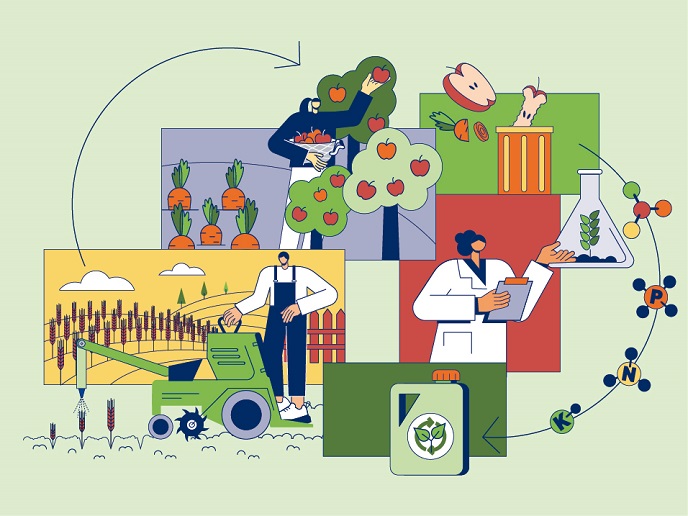Innovative research for sustainable fertiliser production and nutrient management
While humans have been practising agriculture for more than 10 000 years, it was revolutionised a century ago by the innovation of synthetic chemical fertilisers. Today, those transformative inputs are under threat, demanding a new agricultural revolution. In November 2022, the European Commission presented a Communication on ensuring availability and affordability of fertilisers, highlighting the need to reinforce the overall resilience and sustainability of our food systems. Research and innovation carried out through Horizon 2020 and its successor Horizon Europe are key drivers in reducing the dependency on fertiliser imports, improving the efficiency of fertiliser use and reducing nutrient losses, thereby ensuring soil fertility and food affordability. By creating healthy soils rich in organic matter and biodiversity, optimising the efficiency of fertiliser use and enhancing the recovery of nutrients from nutrient-rich side streams such as from manure, food waste or sewage sludge, European farmers can produce healthier crops and higher yields while reducing impact and increasing resilience to climate change. In addition, crop-livestock integration, more environmentally friendly methods of fertiliser production (including the use of green hydrogen), crop diversification and agroecological plant breeds are helping to reduce the EU’s dependency on mineral and fossil fertilisers. Market-based solutions are also crucial to a more sustainable agricultural system, such as the 2019 EU fertilising products regulation that introduced a single market in organic fertiliser, facilitating trade between EU Member States.
A cleaner, greener Europe
Yet improved nutrient management is about more than defending our agricultural system. In step with the European Green Deal, the new common agricultural policy includes activities to reduce emissions from fertiliser use as part of overall action on climate change. Reducing fertiliser use also ties into the Communication on safeguarding food security adopted in March 2022, the Farm to Fork strategy, the REPowerEU initiative on energy independence, and the goals of the EU Action Plan: ‘Towards Zero Pollution for Air, Water and Soil’. Research and innovation for transition towards healthy soils and sustainable soil management is supported by the EU Mission A Soil Deal for Europe’. The European Innovation Partnership for agricultural sustainability (EIP-AGRI) promotes innovation, knowledge exchange, education and training to ensure farm resilience and competitiveness. EU-funded research and innovation is accelerating Europe’s transition towards sustainable, resilient, circular and competitive farming systems. The 13 projects in this Results Pack on Fertilisers cover a range of approaches. Several examine how manure can be efficiently recycled as fertiliser, including Sustainable Manure and its successor SmartNitroFarm, as well as Treat2ReUse. Others look at how to produce fertilisers from alternative sources, such as digestate NOMAD, bacteria mining BioRevolution, algae Cyanobacteria and wastewater from slaughterhouses Water2REturn and farms PSust-MOF. The need to understand and manage nutrient cycles and soil health is addressed by SENSOILS, Circular Agronomics, Nutri2Cycle and NitroFixSal, while SolACE investigates new crop varieties.



